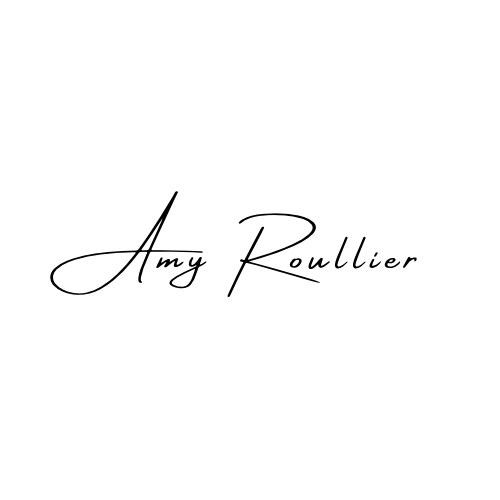.
Ever struggled to find the right balance between wanting to do a good job and knowing when to say you can’t take on anymore because you don’t want your commitment to doing a good job leading to 50+ hour weeks? Yep, I feel you.
Pre-Pandemic my career dominated my life. I’d leave home at around 6am, attempting to miss the rush hour traffic as I drove across the UK to meet with customers. If I was lucky I’d be home by 5pm, ready to put in a good few hours of tackling emails to curb the work pressure anxiety. This, combined with domestic and overseas work conferences, meant I rarely saw home.
I stole moments with friends in between work trips, and crammed in time with family when I could. My life was hectic, non-stop, and I started to feel that the balance was all wrong. I was playing hard and working even harder, constantly fitting my personal life around my work life. So when I did see friends or family I was exhausted and I was never fully present with them. Often squeezing in a few hours whilst on route to something work related or as I headed home.
There was zero down time. I was cramming in everything and everyone else, but there was no time left for me. Everything was a juggle to fit it all in. And I was living for work and starting to suffer for it.
“Invest in your work-life balance. Time with friends and family is as important as times at work. Getting that out of balance is a path toward unhappiness.”
— Stephen Gillett
Reaching Burnout Point
Just before the pandemic struck, I knew deep down that I was reaching mental, physical and emotional burnout. I remember seeing one of my friends on the way to a work event and randomly, mid-conversation, bursting into tears. Generally I’m not a crier, so I knew that meant shit must be bad. It was at that moment that I realised something needed to change.
I’ve always had a hard work ethic engrained in me, but I had taken it to an extreme. I’d allowed work to become a priority over everything else in my life. I had kept saying, “Yes” to extra workloads, when I should have been saying, “No.” And the situation had been steadily increasing in pressure since I separated from my husband four years prior. Because it was at that point where work really changed for me. That was the point where I allowed it to creep into my own personal time more and more.
To be honest, looking back it was an escape whilst battling an unamicable divorce. A distraction from things like living with my mother again in my 30s whilst arguing over the marital home with my Ex. Work was something that I could invest more time in because I was newly single with more time to spare.
I’d become one of those people who lives to work, instead of works to live. How did that happen?
It wasn’t only the divorce that increased my work commitment, I wanted more from my career too. I wanted progression, and the only way I saw to do that was to do everything possible to show my value and to prove myself worthy. And so I did what I thought would eventually get me there, I worked harder and harder and harder. But I did this with no consideration of the impact it would have on me personally. I hadn’t considered the cost and the cost was great. Perhaps greater than it should have been.
That moment, tearfully speaking to a friend who said almost painfully simply, “You are working too much, something needs to change,” was when the penny dropped. Realising that work had transformed from an escape to a burden, and one that was over-taking and affecting all aspects of my life. I’d become one of those people who lives to work, instead of works to live. How did that happen? How had I let that happen?
It happened for a number of reasons:
- My Personal Situation Changed: More time to myself after going through a divorce, meant I had gotten into a habit of saying, “Yes,” to more at work. I could do what was being asked of me. I just hadn’t considered that by accepting it, it would be intruding on time I should have been prioritising for myself. My work-life balance was severely off.
- Progression: I wanted to progress, and there is almost an internal expectation of ourselves that to progress, we must put everything into it. Every single thing with nothing left to spare. It’s the only way to prove we are worthy of that next step in our career’s.
- Peer Pressure: Not even pressure from our peers, but again an internal pressure to do the same as everyone else. My boss led by example, working even more hours than I did. I didn’t want to let them down or be seen as not supporting or as being difficult by stating my day was done when contractually, it was.
And The Workload Demanded More Time:
There were elements I could say, “No” too, areas I could control and not take on. However, there were a lot of things I was expected to take on outside of my normal working hours. The workload demanded much more than the contractual hours I was paid for and so there was pressure. Because if I didn’t spend time completing the tasks outside of work, the time within work would become more harrowing as the workload steadily piled up.
“You don’t have to make yourself miserable to be successful.”
— Andrew Wilkinson, founder of MetaLab
Something Needed To Change
Despite now clearly seeing all the reasons for me getting to that burnout point, some of which I could see no way to easily resolve, I had decided to speak to my boss and explain that enough was enough. My mental and emotional state was at an all time low. If I couldn’t function properly, I would be no good to the job. Therefore things were going to need to change. My 1-1 was booked in for the end of March 2020, and then the pandemic struck and everything changed.
The company I work for were forced to make heavy redundancies. Entire roles changed. I spent eighteen months just like everyone else; getting through it, managing what I could. Working from home presented its own challenges in trying to separate work life and home life, which in itself was hard but the positives were no more 6am traffic avoiding mornings. And less time away meant quality time with friends and family.
However as normality somewhat returned, I was left with a role that incorporated elements that a combined six people used to manage. But my mindset prior to the pandemic was the same, and it had even strengthened. Because additionally I had had a lot of time throughout the pandemic, as many of us had, to really look at what I wanted from my work-life balance and consider how to create a happier work-life balance going forward.
Creating a healthier work-life balance
I realise now that a job is just a job and no one is ever irreplaceable. My mental health is a priority, and not something that should be back-benched for the sake of my career. They are also interlinked; if my mental health suffers, so does my ability to perform well at work. My time is my time, whether I spend it eating a Kit Kat watching the latest episode of Love Island, or figuring out the meaning of life, it doesn’t matter. It’s mine to do with as I please.
When presented with a project or extra task I now ask myself, Is what is being asked of me realistic with the hours I am contracted to work? I assess the controllable elements. I am clear on what timescales are realistic for completion. How much I can realistically take on. Is what is being asked of me realistic or unrealistic? If there aren’t enough hours in the day to complete the tasks and projects fall behind or deadlines aren’t met, that’s not my fault. There cannot be an expectation to commit to hours way past what someone is contracted for. It isn’t healthy or realistic to maintain.
“No-one on his deathbed ever said, ‘I wish I had spent more time at the office’.”
— Paul Tsongas, Politician
I am putting myself first
My working hours are enough to prove my worth because I work damn hard. Effort equals success in my mind, and I’m giving total commitment to my job during my working week, as it should be. This should be enough to prove my worth. I shouldn’t expect myself, be expected by my workplace or my colleagues, to do anything more than that.
Over-working is still a hard habit to break. But I set myself an expectation of flexibility around what I will do over those working hours, and then I try to start and finish no earlier or later than those times.
I also have to accept that there will always be an element of guilt. Guilt for working only my contracted hours, especially when colleagues may work over theirs. For not feeling like I am doing a good job, because the hours I work often aren’t enough to do all the tasks I need to complete to the levels I expect of myself. Guilt at saying, “No” to extra workload, when I am only saying, “No,” because I quite simply and realistically cannot take on anymore. And guilt for feeling selfish, because all of these actions mean I am attempting to put myself first and avoid burning out.
Our jobs provide one of the biggest challenges when it comes to our wellbeing
Those 9-5’s provide one of the biggest challenges when it comes to wellbeing. But I’ve learned that it’s only me who can decide whether that job continues to be a challenge or I try to make the changes necessary to live a happier life, and create a healthier work-life balance.
Are you working to live or living to work? What challenges are you facing?

Amy Roullier
Amy Roullier is a British writer and author of Silent Reflections of a Fragile Heart. For her, writing began as personal therapy and has evolved into a way to connect with others. Based in Lincolnshire, Amy is an occasional vegetarian and a dedicated lover of carbs—her true soulmate. She’s currently navigating a mid-life crisis through running, and mornings are simply impossible without coffee.


